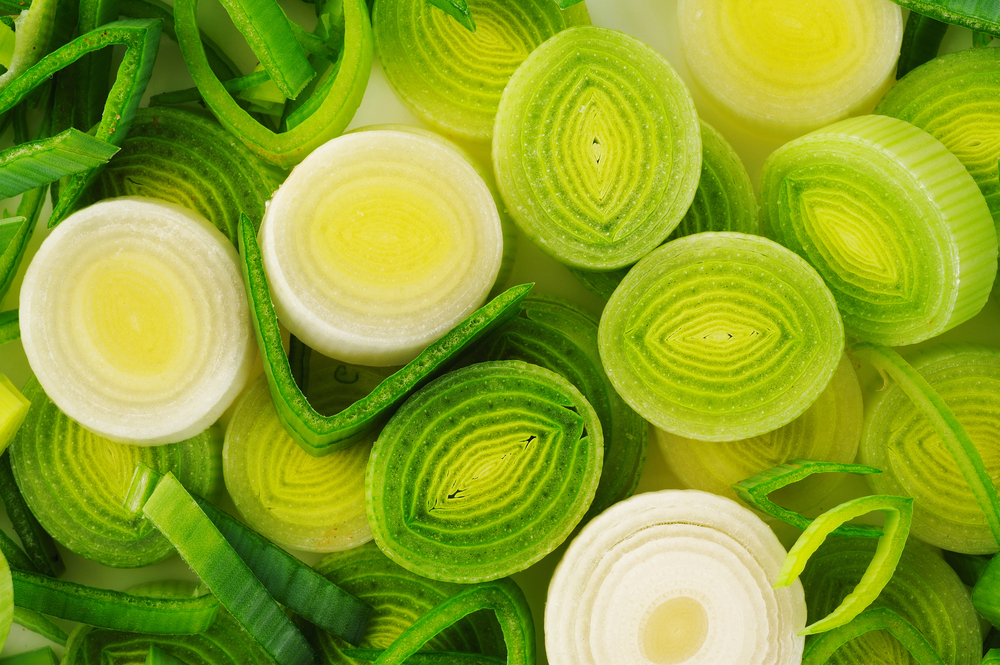Leeks are usually produced in the UK from September to March. With their subtle, sweet taste, they can be a useful alternative to their onion relatives. Choose small to medium ones if you can – they are more tender and produce less waste than the large ones.
Storing and preparation
Store them in a sealed bag in the fridge if you are not going to use them straight away as they are inclined to taint other foods.
They need to be cleaned carefully as they can be very dirty and gritty but, that aside, they are easy to prepare for the recipe given below.
Remove any damaged outer skin, cut off the root at the base and the darker green, tough leaves at the top. Slice each leek thinly crosswise into circles – if they are still dirty, rinse them in cold water to clean them.
Leek Sauce for Pasta
You will need a fairly robust medium sized saucepan with a well-fitting lid.
For 4-6
6 medium sized leeks (prepared as above)
A tbsp of rapeseed oil or butter
2 tbsp of water
Put all the ingredients in a medium saucepan and stir them together so that the leeks are coated in the oil or butter and the water. Cover with the lid and set the pan over the lowest possible heat on the hob.
Leave the leeks to “sweat” for 20 minutes (be sure not to let them burn) or until they are meltingly soft but still have their delicate colour – realistically they will probably take at least 30 minutes.
Turn off the heat but keep the leeks warm in the saucepan while you cook some pasta. Reserve 2 or 3 tbsp of the water from cooking the pasta to blend into the leeks before tossing the sauce and the pasta together. You could add some cheese if you like – crumbled Stilton would be good.
See also: Marinated Leeks – Halibut or Hake with Potatoes Leeks and Gremolata

